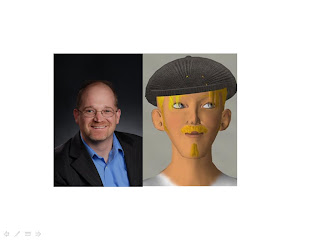
Your virtual world avatar is more an extention of yourself than you think!
In fact, most people behave in a similar fashion within a virtual world as they do in the physical world. Researchers at California State University in Los Angeles have found that “People don’t go online to leave their bodies behind and find new selves, but instead seem to be taking their offline selves, including their biological selves, with them.”
In the study, published in the “Journal of Applied Developmental Psychology” the classic sex differences in play preferences of fifth graders, characterized by rough-and-tumble games among boys and intimate conversations among girls, existed even after youngsters adopted a range of personas for virtual encounters In fact, only 13% of the participants decided to switch genders. The vast majority stayed true to their gender and their physical world behavior even when they changed genders of their avatar. Check out the full article at Playing for Real in a Virtual World.
In another study, researcher Paul W. Eastwich at Northwestern University found that “interactions among strangers within the virtual world are very similar to interactions between strangers in the real world.” Even in the area of racial bias. Eastwich goes on to say “You would think when you're wandering around this fantasyland … that you might behave differently, but people exhibited the same type of behavior -- and the same type of racial bias -- that they show in the real world all the time.”
The sense of who a person is and what they represent is clearly reflected in the online behaviors of their avatars. One's sense of self is merely extended into the virtual space. Read the article Researchers Find Racial Bias in Virtual Worlds for yourself.
As you can see, much can be infered from how you choose to represent yourself as an avatar within a virtual world. You can change hair styles, body type, skin tone, and other elements of the avatar to create just the right look for the virtual extension of your physical self and, it turns out, you act the same way in world as you do in physical space whether you mean to or not.
__
Catalog of Recommended Books, Games and Gadgets
Recommended Games and Gadgets
Recommended Books
Content Guide




3 comments:
I have not a complete information of Avatar before reading your article,i know that, The Avatars are fictional characters in the WB television series Charmed.But now i know very well.
Karl - any thoughts about virtual worlds in a business context and the implications around the bias/perceptions that I've been exploring in my blog (Profile Photos and Email Addresses)?
Maybe a new post on how people bridge that issue in Second Life?
On one hand I think this is BS, on the other hand there might be something going on here.
The BS part: most studies focus on kids, who naturally re-create what is familiar to them. Also, there's a clear difference between avatars in MMORPGs and avatars in spaces like Second Life. The more interesting research (and something we're working on with Lockheed Martin) is what behavioral indicators do people use via their avatar that provide hints to their age, gender, culture, education, etc?
I revisit the question "What do our avatars say about us?" frequently with a colleague. Whenever he enters a virtual world (whether it's SL or WoW or any other), he creates avatars with some sort of likeness to himself.
I'm the exact opposite.
It's a virtual world...why would I want to go and re-create something when I have SOOOO much more freedom to re-create myself and experiment in ways that are impossible in the real world?
What do these avatars say about me?
http://www.virtuallearningworlds.com/avatar_collage.jpg
:)
Post a Comment